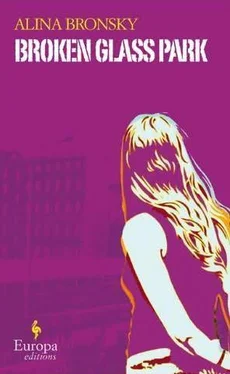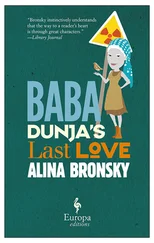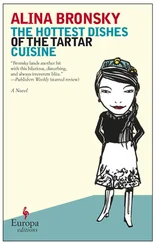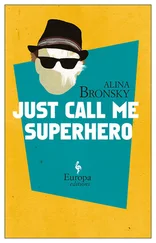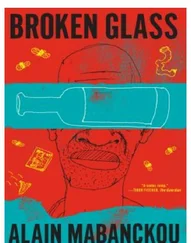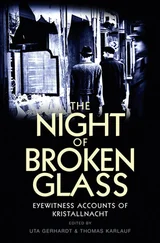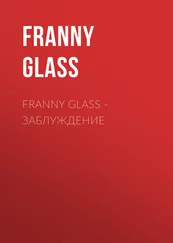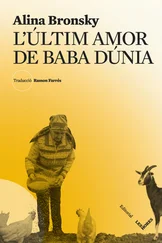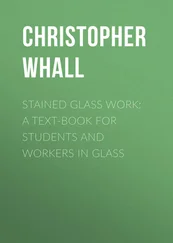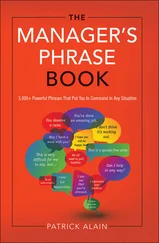She immediately took up residence in Maria’s boundless lap. She wanted to stay there for days on end. It made Maria nervous because she had a hard time cooking with a two-year-old clinging to her. As if any of us wanted to eat. Anton and I didn’t eat for days. At some point he basically collapsed — and I piled on.
I told him that if he didn’t eat he’d be put in the hospital. And if that happened Maria would be deemed an unfit guardian and sent back to Novosibirsk. And then we’d be stuck in an orphanage or split up and sent out to foster homes alone.
He ate after that. I sat with him and watched him steadily chewing, his big, round eyes fixed on the white wall. Maria kept refilling his plate. Anton threw up twice after eating so I told Maria to stick to smaller portions, but to feed him frequently throughout the day. And not to give him such rich food. And to make sure he drank a lot.
Maria was a good cook. She still is. Much better than my mom. Maria knows how to make borscht and other complicated soups. The apartment always smells like food. She makes homemade stocks from chicken or beef, with vegetables and bundles of soup greens. She makes perfectly shaped meatballs and crepes as thin as cold cuts. She discovered sweetened condensed milk at the Russian grocery store around the corner — a delicacy more prized than caviar during Soviet times — and drenches stacks of crepes in it. She makes homemade pickles and black currant jam.
We’re doing well, I tell my mother. We’re being fattened up nicely. I wish you could taste it all. You were always intrigued by anything tasty, interesting-looking, or out of the ordinary.
In the newspaper article, Maria was described as “the only living relative willing to look after the three children left behind.”
We weren’t left behind, I grumbled. And Maria didn’t sacrifice some priceless existence for our sake: when you work in a cafeteria in Novosibirsk and you’re asked if you’d like to move to Germany to make soup for a few kids, you’ve hit the lottery.
Particularly since Maria had only briefly been married once when she was young. Maybe twice. She had no kids and no pets — as far as she was concerned there was nothing to tie her to her studio apartment and the cafeteria. That’s turned out not to be true. I could have told her so. Back in Novosibirsk she could blather to everyone — and she did. Here she’s pretty much damned to silence.
After almost two years here, Maria’s German is limited to about twenty words, things like bus, potato, butter, trash, boil, wash, and fuck you — for the dark-haired teenagers who sometimes whistle and make vulgar gestures at her as she walks past them. Occasionally she tries to group her vocabulary into sentences. That usually doesn’t go too well.
When she’s shopping anywhere but the Russian grocery store, she has to point to whatever she wants and then write out the number she needs. She always carries a little notepad with her for exactly that purpose. Every time she comes back from the discount market she’s bathed in sweat. When she’s spoken to on the street, she whimpers and she gets red blotches on her face. I tried for two weeks to help her master the sentence “I only speak Russian.” She carries it around on a slip of paper in her wallet, transcribed phonetically into Cyrillic letters.
We’re visited regularly by the hyphenated names from the department of family services. Maria freaks out every time, and I have to spend a long time before and after their visits convincing her she is doing a good job and that she won’t have to go back to her job in the cafeteria.
Because as unhappy as she is here in the Emerald, you couldn’t get her to go back to Novosibirsk — not even by force. She does dream of one day returning there, but later, with a thin waist and fancy makeup, with a suitcase full of nice clothes, and preferably accompanied by a German husband with a perfectly groomed mustache. He should also be kind and rich and speak Russian — because German, Maria says, is tougher than Chinese. As if she knows.
When I do my homework, she sometimes sighs behind me, muttering, “Studying is important, studying is good. I never used to study, always worked. Even as a little kid. And look at me now. Where did all that drudgery get me?”
“Read something, dumpling,” I say. “It doesn’t have to be War and Peace right off the bat. Try a mystery.”
“I’m always so tired in the evening, sunshine,” she says. “I forget what I’ve just read and have to keep starting over. It just takes too much effort.”
So every day she reads the latest sheet of her page-a-day calendar — one for Russian Orthodox housewives — with a recipe on it, maybe a diet tip, and once in a while a joke, and that suffices. It makes me roll my eyes, but I make sure she doesn’t see me. After all, she can’t help the fact that she got too few synapses and that she lost two-thirds of the ones she did get working at the cafeteria.
I just worry a little about Alissa. At the moment Maria has a slight intellectual edge over my not quite four-year-old sister, but that won’t be the case for long. I have made reading books aloud a mandatory part of Maria’s schedule. After the first time she read a picture book to Alissa, she said, amazed, “I never knew such interesting books existed.”
She has nothing but love for Alissa. So much so that she was against sending her off to kindergarten at the age of three. She pictured nothing but illnesses and deep-frozen foods. I had to threaten to get the family services department involved to break down Maria’s resistance to the idea of kindergarten. She constantly cuddles and pats my sister and can barely keep herself from sputtering the pathetic phrase I’ve strictly banned from our household: “My poor little orphan.” When Alissa’s not sitting in her lap, she’s standing on a footstool in the kitchen watching meatballs sizzle. She already knows a lot of recipes by heart. Recently she explained to me what fresh coriander looks like and how it smells. “It makes you want to puke,” she said.
Maria’s fear of being shipped back to Novosibirsk has a lot to do with Alissa, too. Separating the two of them would not only break my sister’s heart but Maria’s as well. “When little Ally is all grown up, only then will I feel comfortable leaving,” she says. “I want to raise her and make sure she’s happy and healthy (my poor little orphan).”
Other times Maria says she’ll feel comfortable leaving only once Alissa has found a decent man to marry.
“You’re not a servant,” I say. “And besides, it’s possible she won’t find a decent man to marry until she’s in her late thirties — if she’s lucky.”
“Okay, then when she gets her diploma,” she says. “That will be a happy day for me, too.”
For her “diploma” is a magic term — like “capital gains tax” or “paracetamol.”
She would die for Alissa. That’s not to say she has anything against Anton. She tries to cuddle him, too, but Anton won’t let anyone touch him. He just keeps retreating until his back is against the wall. And at that point Maria realizes she should let go of him. A few months ago I watched as he told Maria about his day at school. She sat at the kitchen table with her chin in her hand shaking her head in amazement.
Maria’s afraid of me and that has its advantages.
From her perspective, there are plenty of reasons to be in awe of me. Not only can I speak Latin and French — which are about as relevant to her life as speaking Martian — but I can also speak — and this is something much more concrete — the language in this damn country. I explain the lay of the land to her and take her shopping, where an interpreter comes in very handy. I know how to fill out all the paperwork to apply for welfare and for children’s benefits. I’m usually around when workers from the family services department are scheduled to visit. I always offer her the highest praise. When I have to translate a question for her, I always start thinking up the answer to it immediately.
Читать дальше
